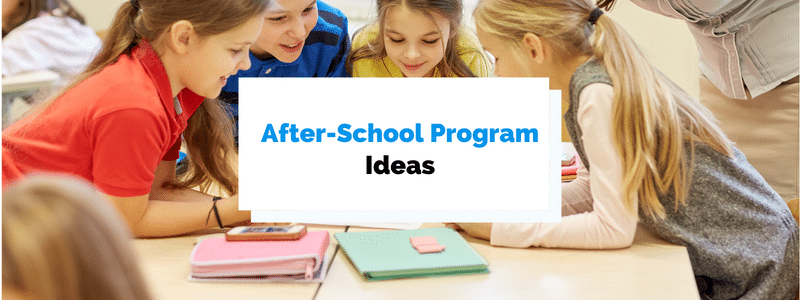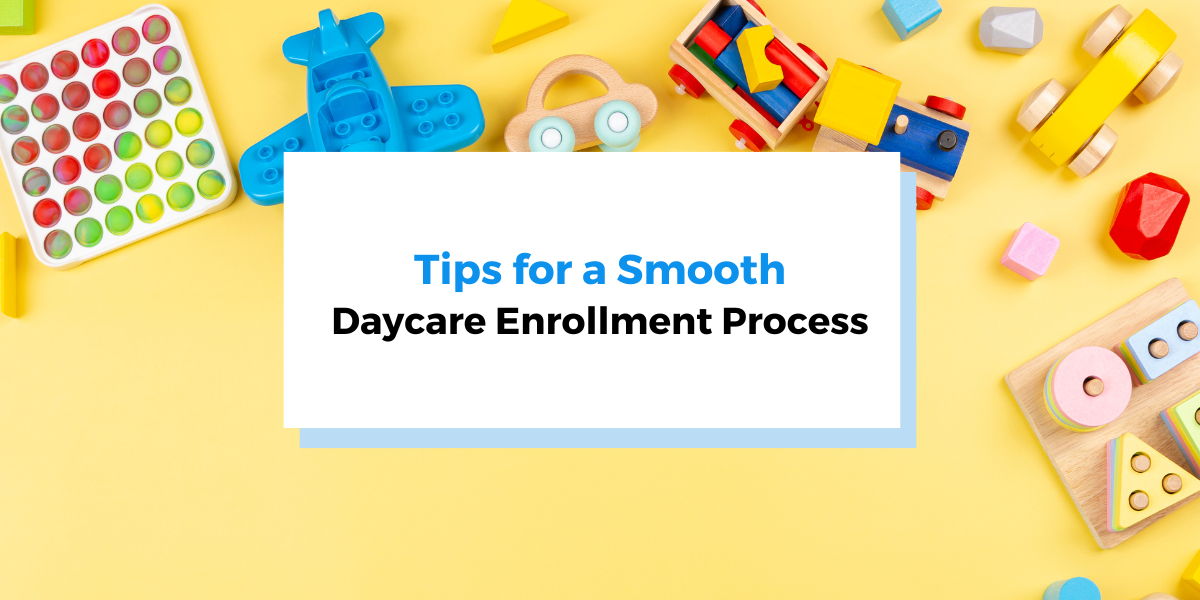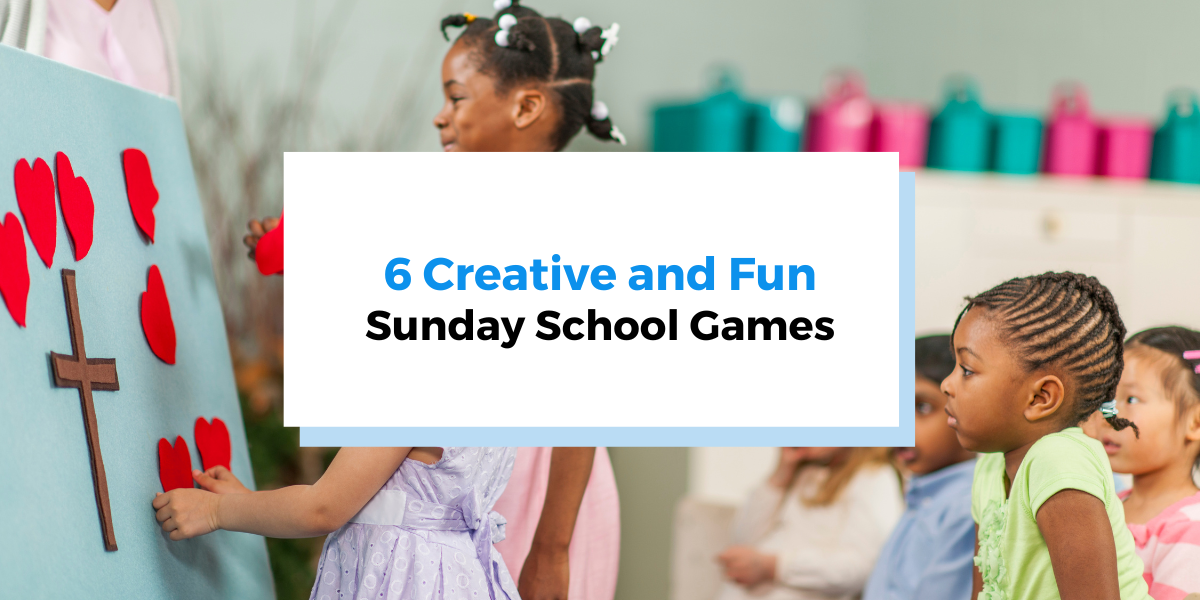To be efficient, high-quality afterschool programs have to get at least two things right.
First, just like a regular school, it has to provide children with useful skills and knowledge.
Second, precisely because it is optional and held outside of school hours, it is crucial that the students find the program fun and engaging.
In this article, we list a variety of activities for your after-school program that offer students enrichment activities and make their time fly by fast. Of course, these may look different for different ages. For example, the games you play with elementary students will vary significantly from the activities for high school students, but you can tailor each of these ideas to your grade level.
- Playing Board Games
- Storytelling
- Putting on a Play
- Making a Movie
- Creating Art
- Crafting
- Cooking
- Gardening
- Conducting Science Experiments
- Coding
- Scavenger Hunting
- Doing an Obstacle Course
- Conclusion
Playing Board Games
A fun after-school program idea for children of all ages is playing board games.
In a paper researching the role of board games in learning, researchers Daniela K. O’Neill and Paige E. Holmes write:
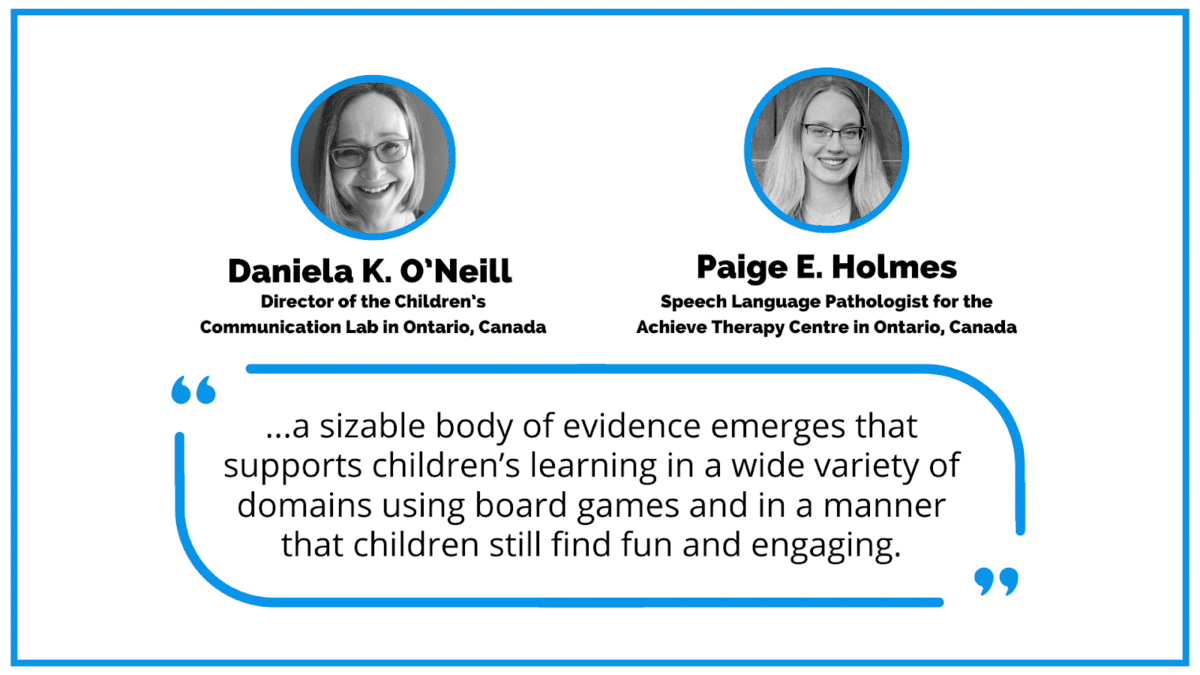
Source: ResearchGate / Illustration: Regpack
Not only are board games a good source of entertainment, but they also help children develop in important areas like language, science, social skills, and problem-solving skills.
There are a wide variety of games to choose from. Students can divide into groups and compete in classic games like Monopoly, Scrabble, Jenga, and Chess.
They should also be encouraged to make suggestions or bring their favorite games from home.
Playing board games will keep children occupied and engaged for hours, while also helping their personal development, which makes the activity a great idea for your after-school program.
Storytelling
Storytelling is another great option for an after-school program for younger children.
Elementary school children love stories. Stories spark their imagination by taking them to unknown worlds and exposing them to exciting new ideas.
For class, students can try to write their own stories and read them out loud. Alternatively, they can draw from a collection of storytelling prompts and expand on them using their imagination.
No matter the method, storytelling can help develop your students’ speaking, listening, and writing skills.
For example, children’s books author Heather Forest has compiled a list of 20 storytelling activities you can use in your program:
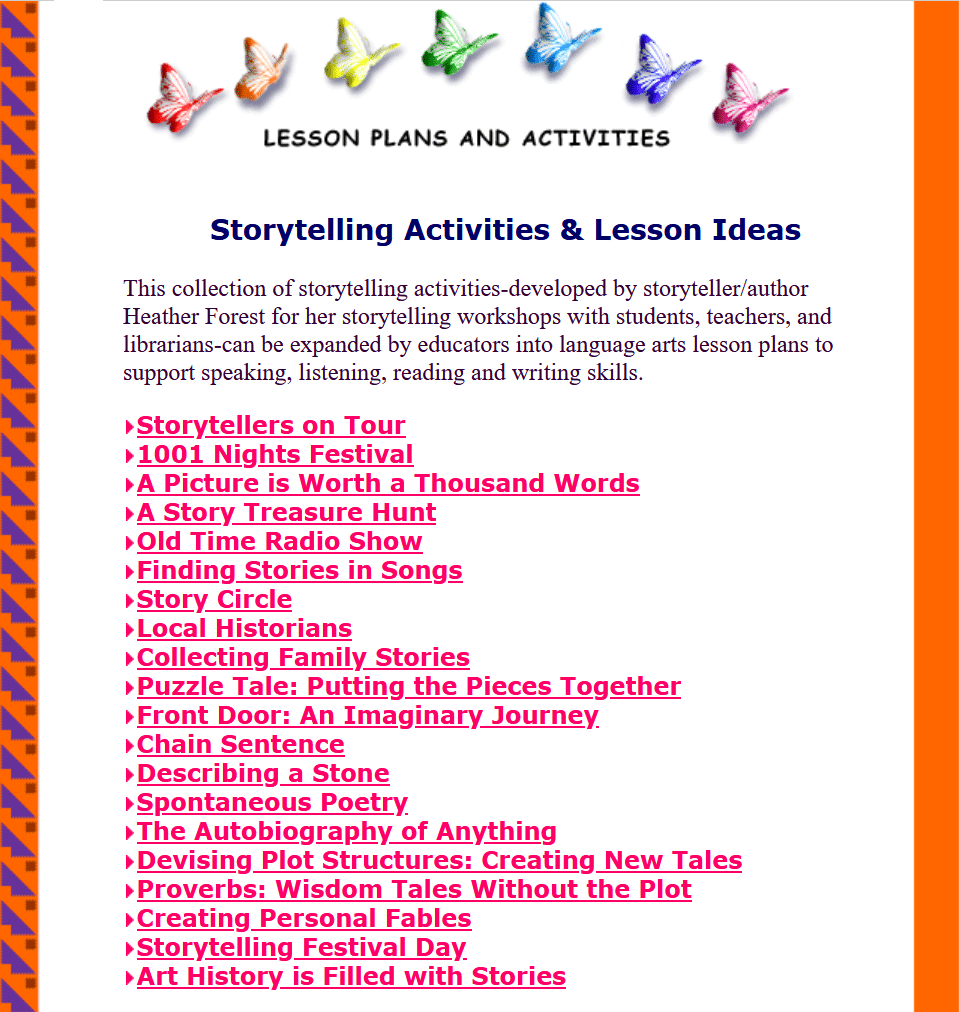
Source: StoryArts
Try them out with your students and see which one works best.
Ultimately, storytelling is a great after-school programming idea that can capture children’s imaginations and teach them valuable communication skills they can apply to real life.
Putting on a Play
Telling stories is fun, but acting them out in real life can be even more entertaining.
To put on a play, students will first have to come up with a story or adapt an existing one—with the help of their teachers, of course.
They can then divide the acting roles among each other and work together on making costumes and set props.
Other than being a good outlet for creativity, research has shown that acting has a positive effect on developing young people’s social cognitive skills.
In a paper researching empathy and the theory of mind, psychology professors Thalia Goldstein and Ellen Winner state the following:
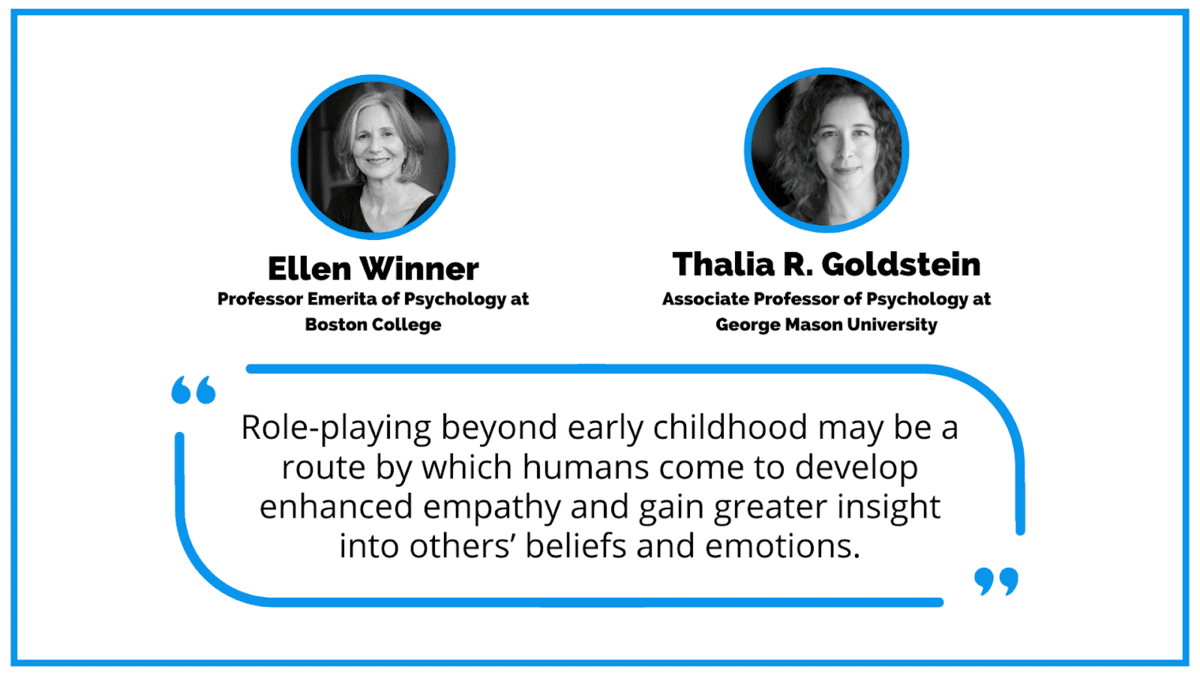
Source: ResearchGate / Illustration: Regpack
After all, to act like made-up characters, children have to consider situations from a different perspective than their own, which leads to a deeper understanding of other people’s feelings and actions, enhancing emotional learning.
To conclude, putting on a play can be a fun and meaningful activity that teaches children how to work in a team and empathize with others.
Making a Movie
Another after-school program idea similar to putting on a play is making a movie.
Today, the equipment for making movies is much more accessible than before.
Most smartphones can capture high-quality video footage, and there are many free editing apps available online.
Furthermore, children older than 10 are often more proficient with new technology than most young adults and usually watch videos daily.
They will enjoy trying to make their own movie to show their friends or share online.
In the meantime, they will develop practical skills like filming and editing. This can lead them to make videos of their own or even pursue filmmaking as a career.
For inspiration, check out some of the short films made by children who attended the CinemaKidz after-school program:
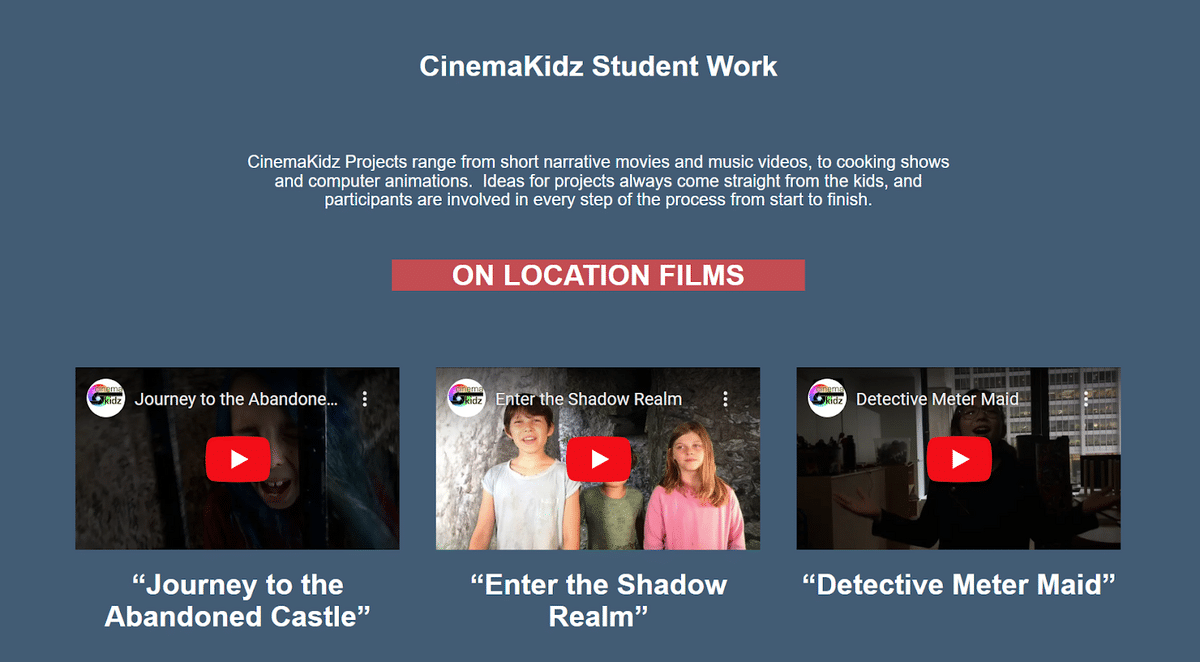
Source: CinemaKidz
As you can see, not only is making a movie a fun after-school project, but it will leave your students with a tangible result that they can proudly show to their friends or parents.
Creating Art
Another fun idea for an after-school program is creating art.
By drawing funny characters, favorite animals, and various objects from nature, children can express their unique way of viewing the world.
All they need to start creating is paper, drawing tools like crayons or brushes, and paint.
If you don’t have enough supplies for everyone, think outside the box. For example, your students can collect rocks and draw faces on them instead of paper.
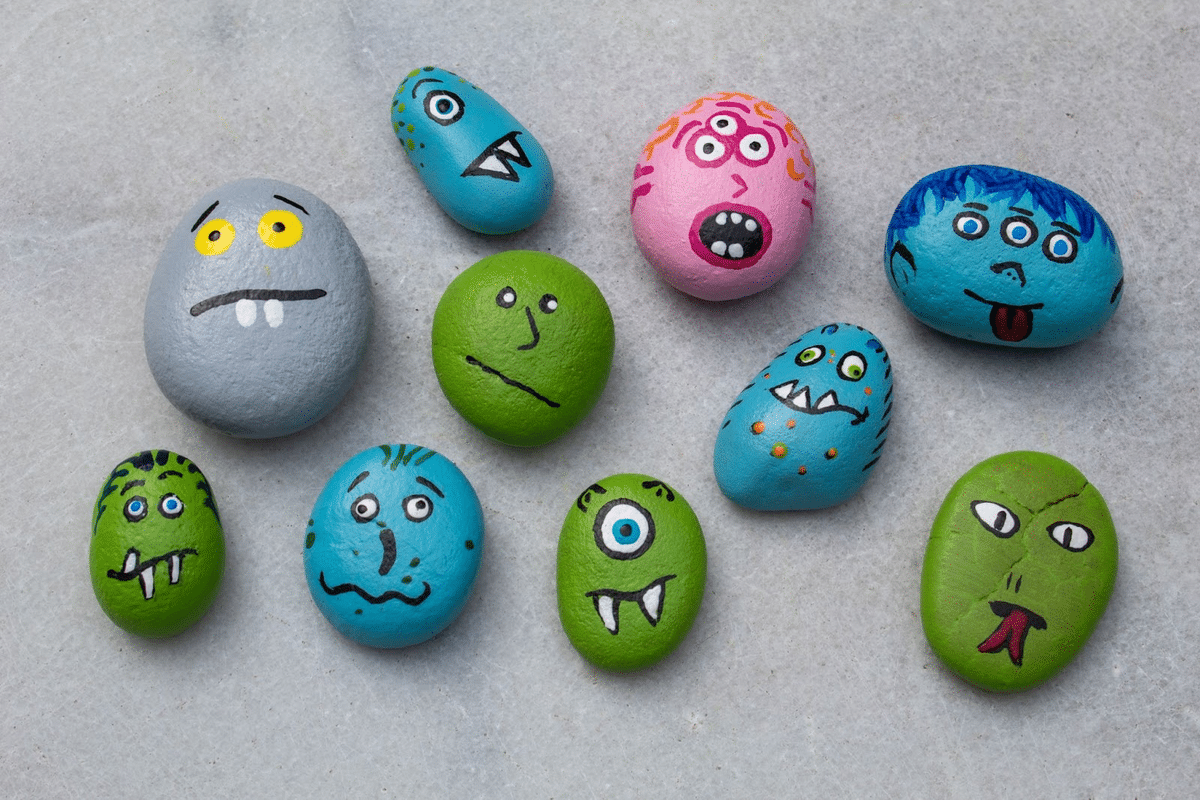
Source: Pexels
If they start making art from an early age, children will start to notice an increase in their artistic skills and learn to take pride in their creations.
This will boost their self-confidence and give them more courage to take on different challenges later in life.
Overall, art projects are a fun and engaging activity for children, which ignites their imagination and allows them to express themselves visually.
Crafting
Crafting is another after-school program idea that taps into children’s artistic side.
Students can have hours of fun turning readily available materials into their own little works of art.
Many crafts can be made quickly, like these ones:

Source: All Free Kids Craft
Pipe-cleaner animals, clay figures, rubber band art, popsicle stick structures, and paper collages are some of the popular choices, but children can also provide their own ideas.
Because crafting involves a lot of cutting, molding, gluing, and manipulating diverse items, it can positively affect your students’ fine motor skills.
Using their hands and fingers as tools for precise movements will strengthen their muscles and improve hand-eye coordination.
To conclude, crafting is a creative activity that helps children develop important fine motor skills.
Cooking
If children in your after-school program love to work with food, cooking or baking is another entertaining activity to try.
For a start, they can make simple foods they like to eat. For example, most children adore ice cream, which can be easily made in a bag, using only a few ingredients.
You can also help them bake delicious cookies of various shapes and sizes.
If you search for easy-to-make recipes for kids online, you will find plenty of websites to draw inspiration from, like Cooking With My Kids:

Source: Cooking With My Kids
The site is dedicated to simple recipes you can make with children, with separate sections for dinner and lunches, desserts and baking.
Overall, if you decide to use cooking for your after-school program, your students will enjoy making the food, and even more when they get to eat the result of their labor.
Gardening
Gardening is a fun and rewarding after-school program idea that helps children develop a healthy lifestyle.
To begin with, it is a physical activity that allows children to spend time outdoors, away from their phones and computer screens.
Growing a seed into a plant requires students to learn how to dig, weed and hoe, and generally get their hands dirty.
By familiarizing themselves with how the natural world works, students will develop a greater appreciation for the environment and become more open to new experiences, especially outdoors.
A report from the National Foundation for Educational Research (NFER) claims that gardening also increases “children’s willingness to try new vegetables such as cabbage, marrow and courgettes.” Encourage healthy eating while providing a valuable after school activity.
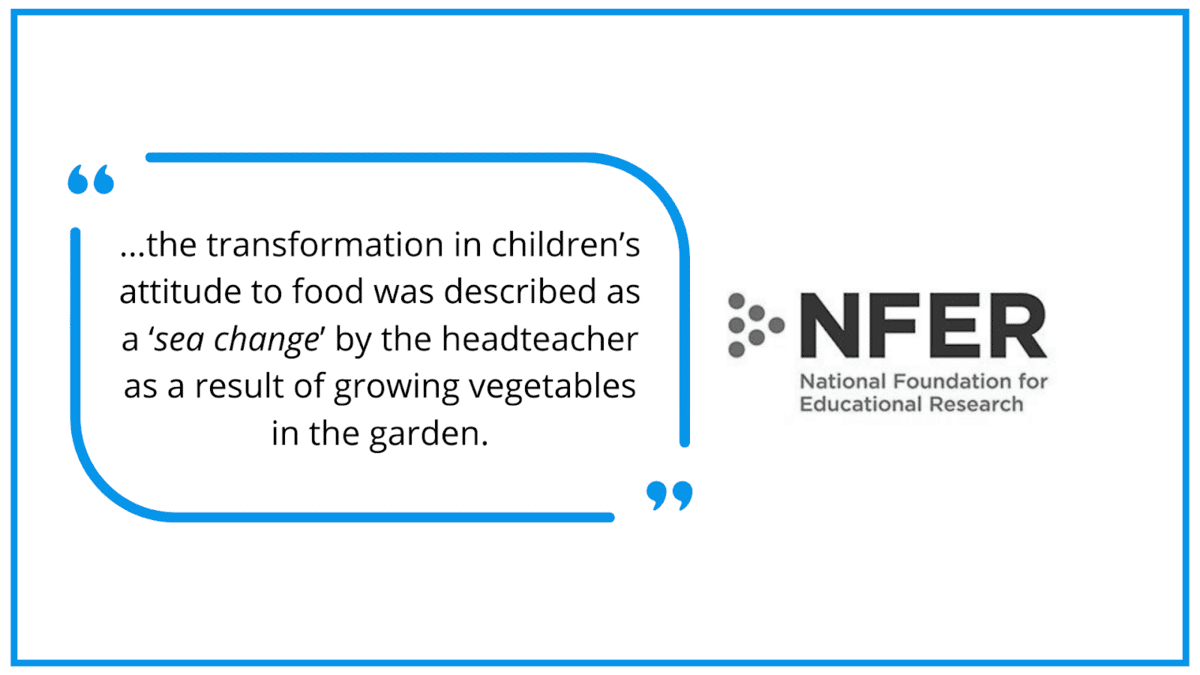
Source: NFER / Illustration: Regpack
All in all, gardening is a fun outdoor activity that provides children with a variety of health benefits, such as physical health, environmental awareness, and a greater affinity towards healthy eating.
Conducting Science Experiments
Another way to teach children about the world is by doing science experiments.
Children are natural explorers who love figuring out how the world works.
Conducting science experiments sparks their intellectual curiosity and develops their problem-solving and critical thinking skills in an entertaining and engaging way.
After all, to the untrained eye, science experiments can look like magic. Students will love figuring out how they work and reproducing them by themselves.
There are a lot of fun stem activities and experiments children can do with widely available ingredients.
For example, to make a homemade lava lamp, all they need is a plastic bottle, water, oil, fizzing tablets, and food coloring.
The full instructions, along with several other experiments, can be found on the Milwaukee With Kids website.
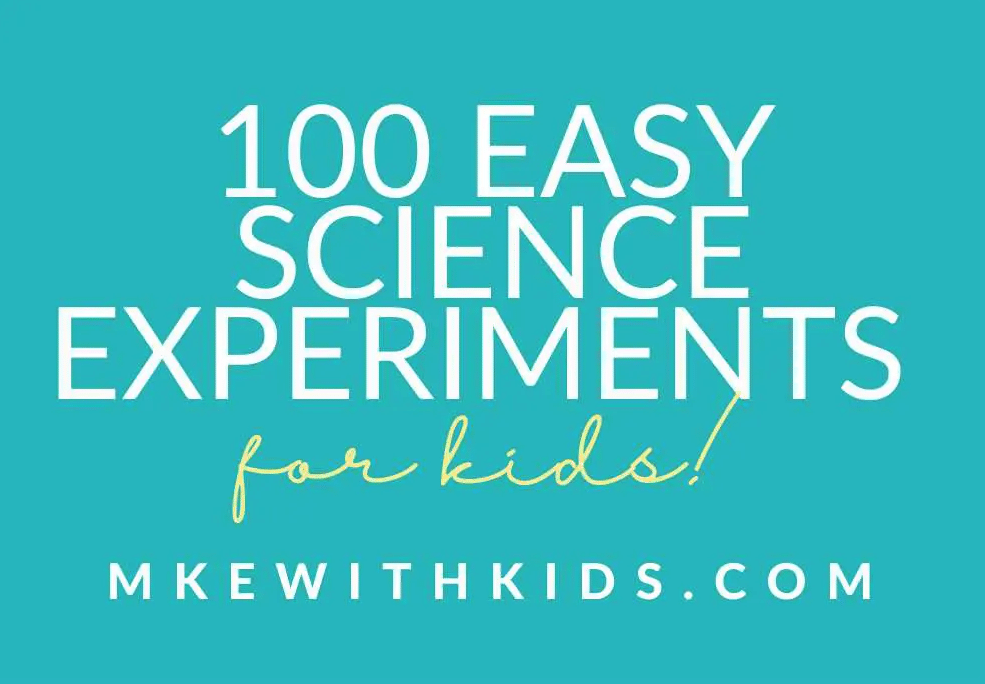
Source: Milwaukee With Kids
To sum it up, simple science experiments can be fun activities that fascinate children and awaken their curiosity.
Coding
A popular STEM-related activity for quality afterschool programs is coding.
While coding may seem like a complicated subject to adults, older kids see it as a game similar to many others they play with friends in their free time.
To them, programming tasks, especially ones adapted to their level, are just fun little challenges they can complete to move on to the next level.
By learning to code from an early age, children will develop important digital literacy skills.
That means they will learn to effortlessly use new technology and digital platforms to find, evaluate and communicate information.
Seeing as the world is becoming more and more digitized, digital literacy could be crucial for children’s future academic pursuits.
As the author of Coding Literacy, Annette Vee, puts it:
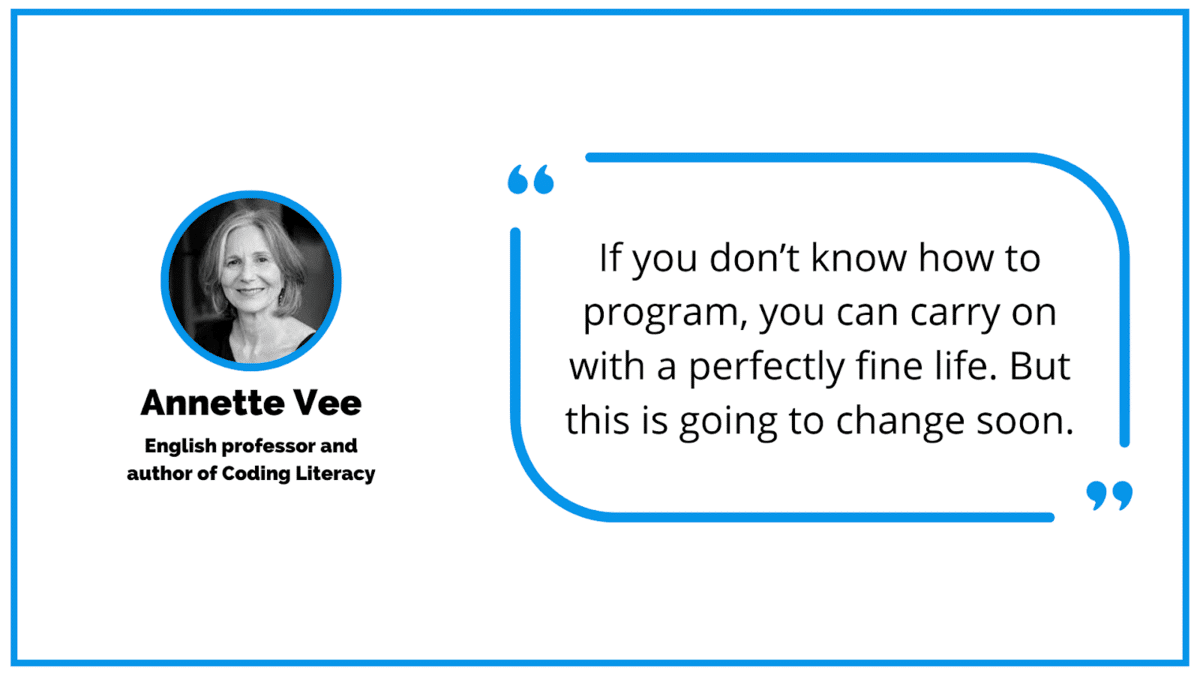
Source: Inside Higher Ed
Overall, coding can be a fun, game-like activity that appeals to young children familiar with technology and helps them become more digitally literate.
Scavenger Hunting
Scavenger hunting is a popular after-school activity for children of all ages.
The goal of a scavenger hunt is simple—find all items on a list. Students are divided into groups, and the first one to complete the list is pronounced winner and usually receives a prize.
Because they require children to cooperate to reach a goal in a competitive environment, scavenger hunts are great for practicing teamwork and communication.
But the best part is that they can be customized to fit additional educational purposes.
For example, here is a fun scavenger hunt for young children that also requires them to use their math skills:
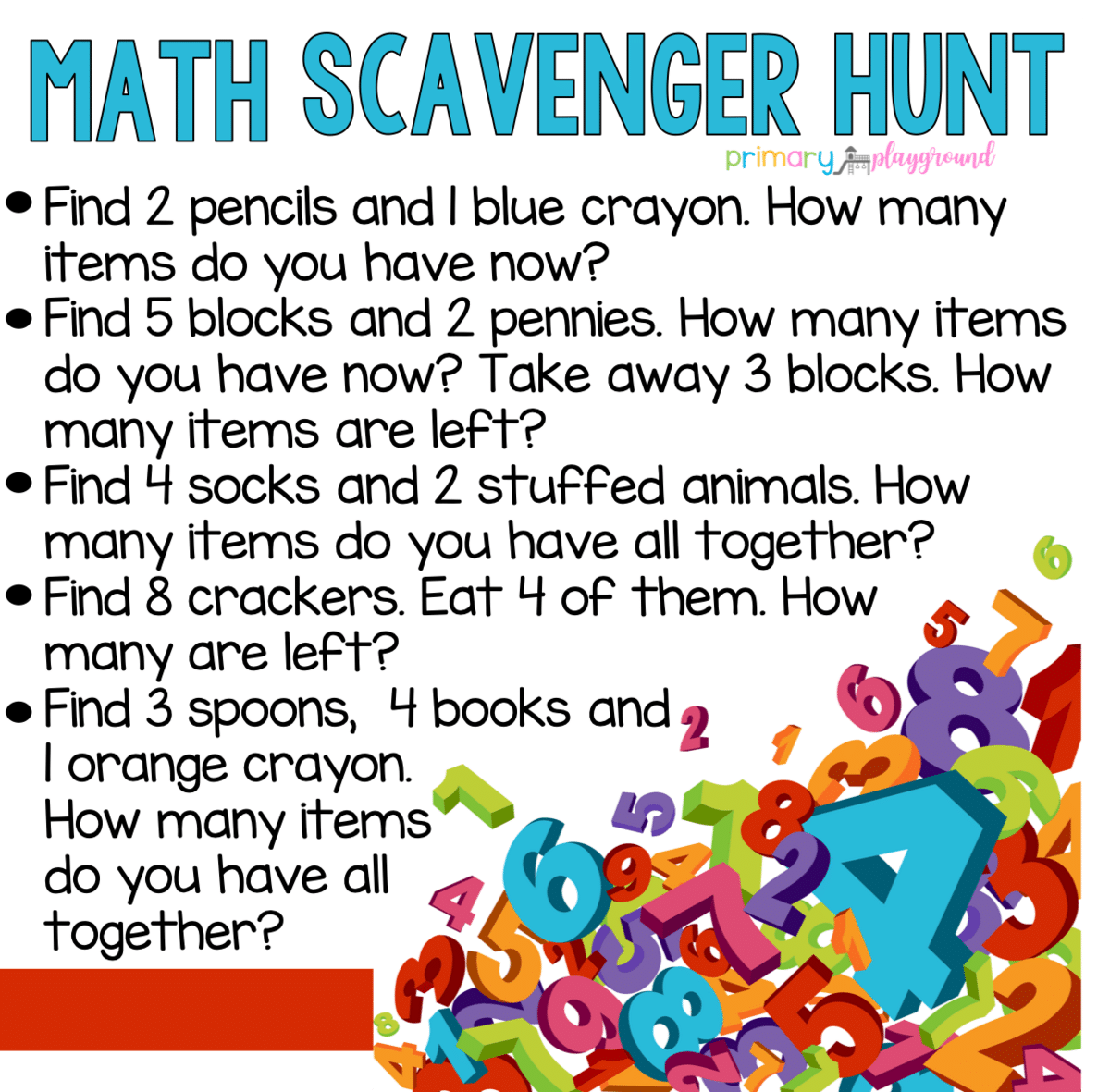
Source: Primary Playground
The same method can be applied to other subjects, like learning the alphabet or the names of plants.
Scavenger hunts are a tried and tested method of entertainment for children, and imbuing them with educational value can be a good idea for your after-school program.
Doing an Obstacle Course
Another physical activity that guarantees fun for children regardless of age and gender is doing an obstacle course.
In order to complete the course, children will get to climb walls, crawl through tunnels, jump over obstacles and run tracks.
This means they will get to exercise different muscle groups, improving their overall strength and balance.
Research has shown that doing obstacle courses offers benefits for children who are out of shape.
As researchers Syafura Audina and Panggung Sutapa write in their paper on the effect of obstacle games on obese children:
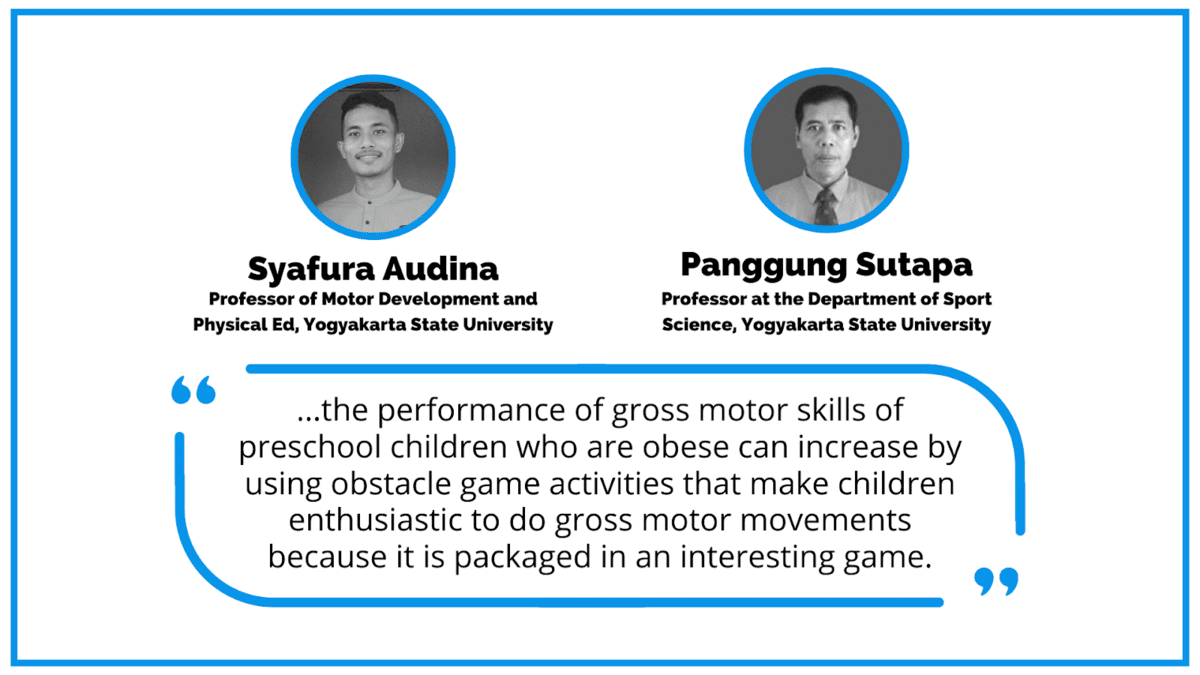
Source: Atlantis Press / Illustration: Regpack
That means that overweight children have greater motivation and are provided a safe place to engage in this active game, and therefore improve their health if they perceive the activity as fun.
Ultimately, doing an obstacle course is an engaging physical activity that can motivate your students to get the exercise they need.
Conclusion
High-quality afterschool programs during the school year have proven to improve student’s behavior, increase school attendance, and even improve emotional development and a variety of skills. Your after-school program can have a profound effect on your students and you want the right activities for the job.
Because children often perceive school as serious and rigid, they expect after-school programs to allow them to relax and take their minds off of regular classes by having fun and playing with their peers.
Their parents, however, want their children to spend as much time as possible on education and skill development. While some programs solely focus on homework assistance and academic support, the ideas presented in this article offer a great balance of education and entertainment, keeping both the children and their parents happy, and ensuring a long-lasting and successful afterschool program.


